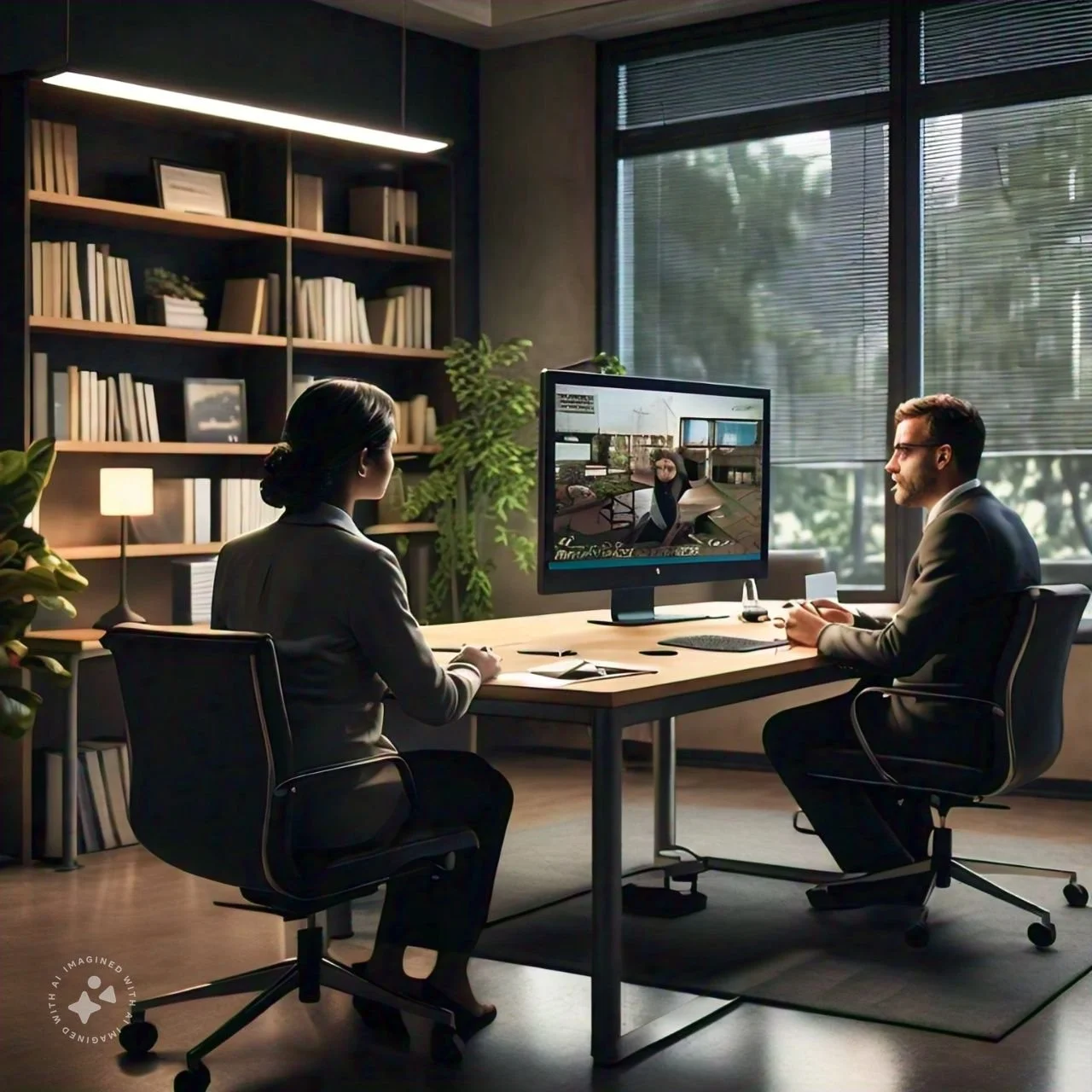Effective Use of Video Interviews in Hospitality Recruitment
In the fast-paced world of hospitality, where the guest experience is paramount, recruiting the right talent is critical. In recent years, video interviews have emerged as a powerful tool in the recruitment arsenal, offering both efficiency and depth to the hiring process. As HR heads and recruitment leaders in the hospitality industry, leveraging video interviews effectively can streamline hiring, reduce costs, and help identify the right cultural and skill fit for your organization. Here’s how to make the most of video interviews in your hospitality recruitment strategy.
1. Understanding the Benefits of Video Interviews
Before diving into the strategies, it’s essential to understand the key advantages video interviews offer in hospitality recruitment:
• Wider Talent Pool: Video interviews allow you to cast a wider net, engaging with candidates from different geographical locations. This is particularly useful in hospitality, where international talent can bring diverse skills and perspectives.
• Efficiency in Screening: Video interviews enable quicker initial screenings, reducing the time-to-hire. Instead of coordinating schedules for in-person interviews, you can assess more candidates in a shorter period.
• Enhanced Candidate Experience: A seamless video interview process can reflect positively on your employer brand, showcasing a modern and flexible recruitment approach.
• Cost-Effective: Reducing the need for travel and accommodation expenses for both candidates and recruiters can result in significant savings.
2. Choosing the Right Platform and Technology
Selecting the right video interviewing platform is crucial. For hospitality recruitment, where first impressions and presentation matter, opt for platforms that offer high-quality video, ease of use, and reliability. Platforms like Zoom, Microsoft Teams, and specialized recruitment software like HireVue or Spark Hire provide robust features like recording, live feedback, and AI-driven analytics that can help assess non-verbal cues, communication skills, and overall presentation.
Ensure that your chosen platform aligns with your organization’s needs and provides a user-friendly experience for both recruiters and candidates. Technical glitches can lead to a negative experience, so always conduct a test run to iron out any issues beforehand.
3. Crafting Structured and Relevant Interview Questions
The essence of an effective video interview lies in asking the right questions. In the hospitality industry, it’s not just about technical skills but also about personality, cultural fit, and the ability to handle high-pressure situations.
Tips for crafting effective questions:
• Behavioral Questions: “Can you describe a time when you had to handle a difficult guest? How did you resolve the situation?”
• Situational Questions: “If a guest complains about slow service during a peak hour, how would you manage it while keeping the team motivated?”
• Skill-Based Questions: Tailor questions to the specific role. For instance, for a chef’s position: “How do you handle inventory management and reduce food wastage?”
Use a consistent set of questions for all candidates applying for the same position to maintain fairness and objectivity in the evaluation process.
4. Preparing Candidates for Success
Unlike in-person interviews, video interviews require a different set of preparations. Providing clear instructions to candidates on what to expect and how to prepare can significantly enhance the interview experience and outcomes. Send out a preparation guide that includes:
• Technical setup instructions (e.g., lighting, background, camera angle).
• Details about the interview process and the platform being used.
• Tips on how to dress professionally and manage time effectively.
A well-prepared candidate is more likely to perform at their best, giving you a clearer picture of their suitability for the role.
5. Assessing Non-Verbal Communication
In the hospitality industry, where communication and body language play a vital role in guest interactions, video interviews provide a unique opportunity to evaluate non-verbal cues. Pay attention to:
• Eye Contact: Consistent eye contact can demonstrate confidence and honesty.
• Body Language: Open and positive body language often indicates a candidate who is comfortable and engaged.
• Facial Expressions: Genuine smiles and attentive expressions can signal a friendly and service-oriented attitude.
Make notes on these non-verbal cues as they can be as telling as the candidate’s verbal responses, especially for guest-facing roles.
6. Incorporating Realistic Job Previews
Hospitality roles often involve high-pressure environments, rapid decision-making, and customer service excellence. To gauge how well a candidate might perform in such an environment, consider incorporating realistic job previews (RJPs) during the video interview.
RJPs can involve situational judgment tests, role-playing exercises, or live problem-solving scenarios. For example, for a front office manager position, simulate a guest check-in scenario where the candidate must manage multiple requests simultaneously. This provides a more holistic view of their abilities beyond a standard Q&A format.
7. Creating a Seamless Post-Interview Experience
Once the interview is complete, the post-interview experience is crucial for maintaining a positive employer brand. Ensure that candidates receive timely feedback and next steps in the process. If possible, offer constructive feedback to candidates who were not selected—this is particularly important in hospitality, where word-of-mouth can significantly impact your employer reputation.
Consider integrating video interviews with your applicant tracking system (ATS) for seamless data management and to keep all stakeholders updated on candidate progress.
8. Training Hiring Managers and Teams
To truly maximize the potential of video interviews, training is essential. Ensure that your hiring managers and interview panels are well-versed in conducting video interviews, assessing both verbal and non-verbal cues, and using the technology effectively. This includes training on unconscious bias to ensure fair and objective evaluations.
Regular workshops and role-playing exercises can help the team stay sharp and improve their interviewing skills, resulting in better hiring decisions.
9. Leveraging AI and Analytics
Many video interview platforms now offer AI-driven analytics that can assess speech patterns, engagement levels, and emotional intelligence. While these tools should not replace human judgment, they can provide additional data points to aid in decision-making. For example, AI can highlight inconsistencies in responses or identify top candidates based on predefined criteria.
10. Ensuring Fairness and Compliance
Lastly, it is vital to ensure that your video interviewing process complies with relevant laws and regulations, including data protection and anti-discrimination laws. Make sure all candidates have equal access to technology and the necessary support to participate effectively in the interview process.
Conclusion
Video interviews, when used effectively, can revolutionize the way hospitality organizations recruit talent. They offer a dynamic, flexible, and cost-effective solution that aligns well with the industry’s fast-paced nature. By choosing the right technology, crafting structured interview questions, assessing non-verbal communication, and training hiring teams, HR heads and recruitment leaders can unlock the full potential of video interviews, ensuring they select candidates who not only fit the role but also embody the culture and values of their organization.
For HR leaders in hospitality, the message is clear: Video interviews are here to stay. Embrace them with the right strategies, and you’ll find the perfect blend of talent that will elevate your guest experience to new heights.











Understanding Time-to-Hire and Cost-per-Hire is essential for hospitality HR professionals. These metrics help optimize recruitment efficiency and budget management, ensuring you attract and retain the best talent in a competitive industry.